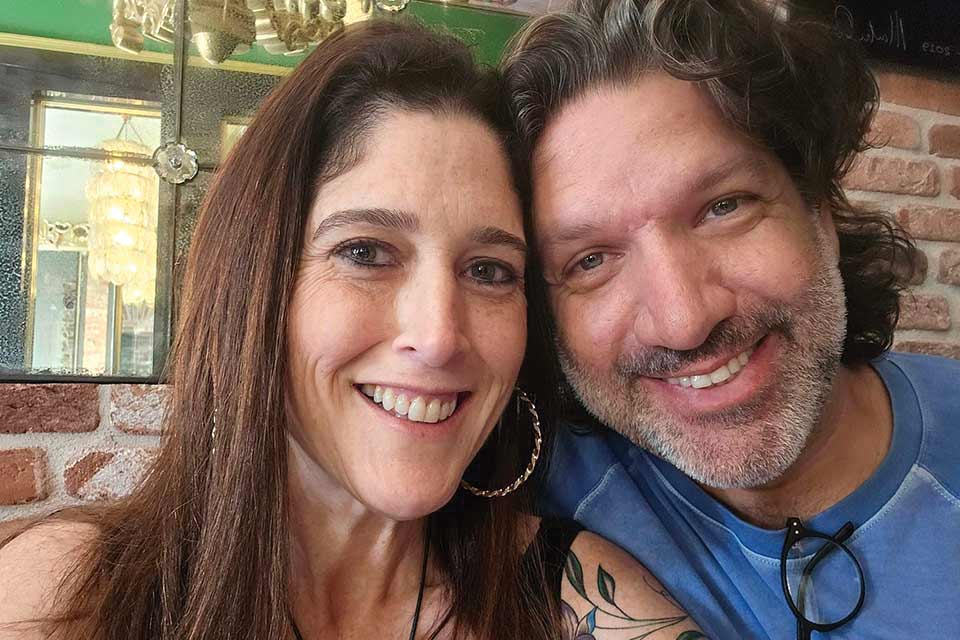Brandeis Reacts to the Israel-Hamas War

Deborah and Shlomi Matias
On Oct. 7, the Brandeis campus woke up to stunning news: a surprise multipronged attack on Israel had been launched by the Palestinian political and militant group Hamas, targeting both military personnel and civilians.
Israel declared war on Hamas in response to the assault.
In a message to the Brandeis community after the attacks began, President Ron Liebowitz wrote, “We condemn in the strongest way terrorism such as we have seen today perpetrated against innocent civilians; we support Israel’s right to defend itself. It has always been our belief at Brandeis that engaging and wrestling with divisive issues from a place of compassion is how we begin to heal our broken world.”
The events struck tragically close to home for many Brandeisians, including Ilan Troen ’63, the Karl, Harry, and Helen Stoll Professor of Israel Studies, Emeritus, who lives in Israel. Troen’s daughter and son-in-law, Deborah and Shlomi Matias, were killed after terrorists broke into their Beersheba home during the initial wave of attacks. The couple died while shielding their 16-year-old son, Rotem, from gunfire. Rotem was shot in his abdomen but survived.
Deborah had called Troen as soon as she heard gunshots; a wounded Rotem texted with family after his parents were killed. “Victims were in touch with family from shortly after Hamas invaded,” Troen said later. “Most of us had been deeply involved in the horrific events in an intimate, ongoing, and entirely modern way. We and our loved ones have cellphones. This is not the classic war of soldiers at the front unconnected from civilians at the rear.”
He continued, “It makes for a determined and engaged country resolved to confront the evil visited on us by an enemy who must be vanquished.”
On the Brandeis campus, support services were made available to students via the Brandeis Counseling Center, the Center for Spiritual Life, and the Ombuds Office.
The Brandeis Stories website asked Alexander Kaye, the Karl, Harry, and Helen Stoll Assistant Professor of Israel Studies, how Israeli intelligence had missed the signs of an approaching Hamas attack.
Some experts, Kaye said, “think there has recently been too much Israeli focus on security of settlements in the West Bank at the expense of the southern border. Some point to recent schisms in Israeli society that have weakened the cohesion of the military. Others believe that Israel depended too heavily on high-tech border defenses and were therefore vulnerable to this coordinated onslaught. […] There will surely be an accounting for this failure in the months and years to come.”